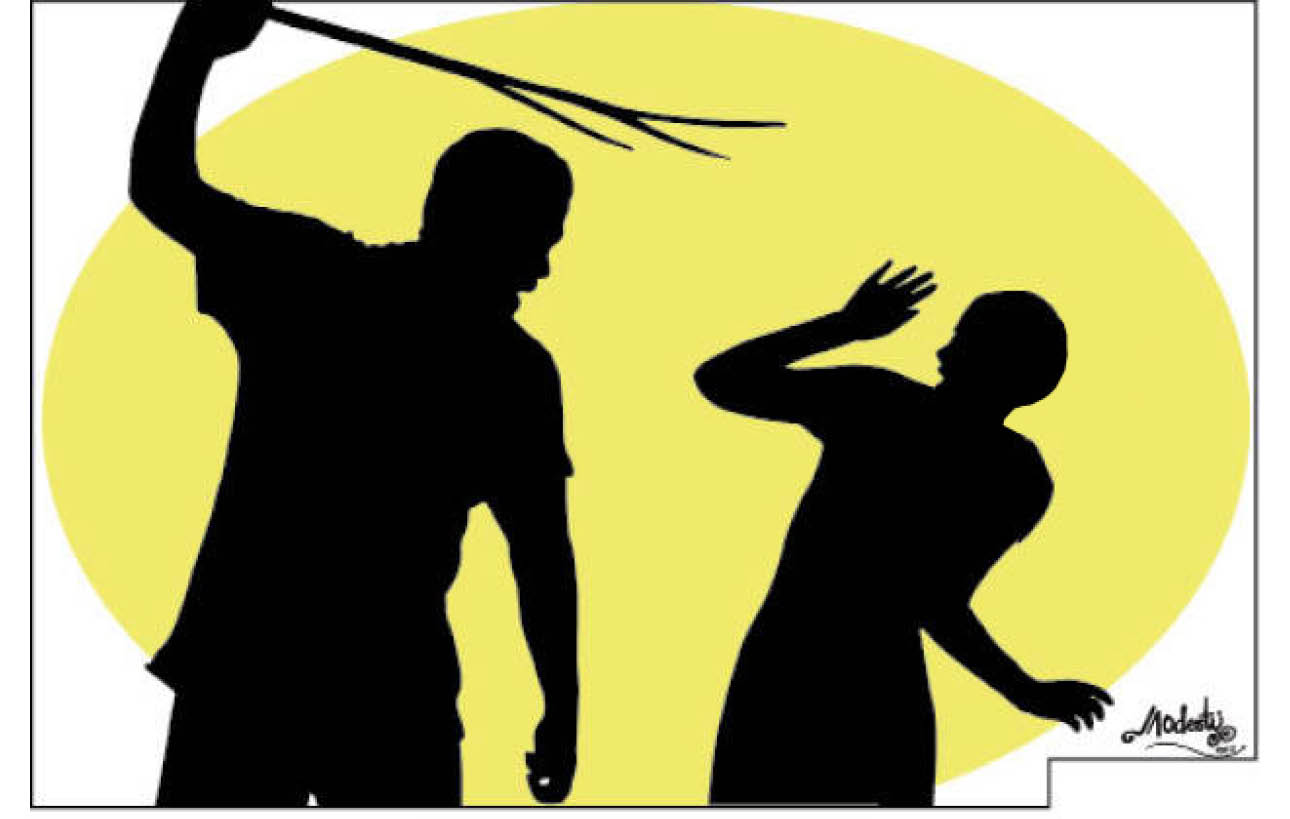It was a tragedy that one wished never occurred. A student on Thursday, January 25, 2024 lost his life after being allegedly flogged by a teacher at the Araromi-Ilogbo Senior Secondary School, Oko-Afo, Badagry, Lagos. The teacher, by name Mr. Oluwale, reportedly beat the 16-year-old student, David Babadipo, which resulted in the latter’s death. Following the incident, the victim was rushed to the hospital where he was confirmed dead.
Similarly, last year in November 2023, a 19-year-old student in Zaria, Kaduna State, lost his life after receiving brutal beating from the teachers in his school. Nuhu Sambo who was a JSS3 student of Al-Azhar Academy, Kofar Gaya in Zaria, allegedly stopped going to school after he failed in his exams and was asked to repeat. When one of his uncles dragged Sambo to the school principal, his teachers rough-handled him, and out of uncontrolled anger, broke his tooth and stripped him naked. Sambo’s immediate family members and relatives were not told about this incident until his dead body was discovered near the school toilet and taken to the hospital where Sambo was confirmed dead.
While the school performs the dual role of giving students intellectual and moral training, the second must be carried out with a high sense of responsibility and strictly within the purview of standards defined by school rules and regulations. Like reward, punishment in a school system is not designed to inflict harm or injury on the learner. Rather, it primarily functions to make erring learners realise that a particular behaviour exhibited at a particular time is not acceptable, and therefore, should be cast-off. Any disciplinary action taken by a teacher to correct unwanted behaviours among students should not make leaners to abhor learning or school in general. Because they lack the required training, some teachers don’t know when, how and where to apply physical punishment on students. This is why such ‘teachers’ flog students as if the latter were donkeys. But even donkeys are not whipped to death.
Besides being encouraged by some revealed religions as a way of inculcating discipline and moral values in children, educational administrators and managers are equally not against the use of physical punishment on children particularly when it has to do with immoral behaviours or neglect of religious duties. In Christianity, for example, the book of Proverbs states in chapter 13 verse 24: “Whoever spares the rod hates their children, but the one who loves their children is careful to discipline them.” Islam equally enjoins parents to beat children who are 10 years old and above when they refuse to observe the five daily obligatory prayers. In all these, the beating meant in these religious injunctions is not the cruel one that would lead to the death of any erring individual. Article 55 of the Penal Code states: “Nothing is an offence, which does not amount to the infliction of grievous hurt upon any person and which is done by a schoolmaster for the purpose of correcting a child under eighteen years of age.
Cancer: FG partners pharmaceutical companies on high medicine costs
FG to enrol cancer patients in health insurance coverage
Beating, which is technically referred to as corporal punishment in schools, was not designed from the onset to be a primary form of reprimanding a disobedient child; at home or in the school. Well trained teachers know that the sight of a cane alone, even when it is not used on children, has positive impacts on their behaviour. Corporal punishment in schools belongs to the advanced forms of physical punishment. A recalcitrant student, after receiving series of physical punishment may be sent away from school; beginning with suspension, and thereafter expulsion as the final penalty. Before beating is applied, other forms of punishment other than beating are expected to be applied. They may include sweeping large portions, picking of litters in a school area, clearing of drainages, writing a sentence or phrase repeatedly in hundreds or thousands, and trimming of flowers.
The Chief of Education of the United Nations Children’s Fund (UNICEF) in Nigeria, Saadhna Panday-Soobrayan, said about 85 percent of school children between the ages of one and 14 experience violent disciplinary measures in schools with nearly one in every three children experiencing severe action. She disclosed this during a two-day National Awareness Creation Meeting on Ending Corporal Punishment in Schools, organised in 2022 by the Teachers Registration Council of Nigeria (TRCN).
Unless we give Teacher Education the attention and support it deserves, we are not likely to get other forms of education right. The theoretical encouragement and lip-services paid to Teacher Education in Nigeria is largely responsible for all the inadequacies and failures being suffered by the system particularly at the basic and secondary education levels.
For obvious reasons, corporal punishment should be a last resort in the use of correctional measures to sanction misbehaviours among students. Professionally, the application of corporal punishment requires that it is deployed under the principal or headmaster or other senior authorities in the school. Part of the problem has been how teacher training institutions in the country have, over time, continued to churn out generations of poorly trained teachers who have been licenced to teach and are now in charge of the training of young schoolchildren. This is even as the poorly-trained teachers themselves lack personal discipline and professional experience which a well-trained teacher requires in managing stubborn pupils and students.
A schoolchild would permanently avoid acts of misconduct if the decision to forsake such derived from his conviction to remain a disciplined individual, not because he would suffer any physical consequences if he failed to obey the order. The abandonment of acts of misconducts by schoolchildren should not be because there are punishments for acts of indiscipline. Rather, it should sprout from the belief that it is wrong to be naughty and disobedient. May Allah grant our poorly-trained teachers the patience they need to be called teachers, amin. The school is for teachers, not torturers.

 Join Daily Trust WhatsApp Community For Quick Access To News and Happenings Around You.
Join Daily Trust WhatsApp Community For Quick Access To News and Happenings Around You.


